We have a big story to tell
Help us celebrate all the good Cornellians can do! Tell us about the areas and organizations you support in your community. ❤️🐻
Share your storyWelcome, CAU Summer 2024 participants!

Use the navigation bar or the link above, and scroll to your week one course for updates on location, reading lists, schedule, and more.
Use the navigation bar or the link above, and scroll to your week two course for updates on location, reading lists, schedule, and more.
Check your course information below for location details.
Then refer to the Campus Map to learn more, and see parking details.
Need a ride to class? Or an accessible parking space on Central Campus? See options here.
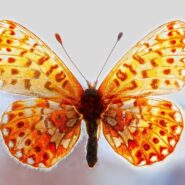
Check this section for updates from your faculty, as well as class times, building location, and classroom numbers. This section will be updated as CAU has more information to share.
Course Transfers: Sunday or Monday transfers from one course to another may be accommodated pending availability and logistics. Reach out to cauinfo@cornell.edu to learn more.
Read, print, sign in advance, and bring along to check-in.
Copies will also be available at check-in.
ZOOM LINK: https://cornell.zoom.us/j/95409899557?pwd=anpKU2lCbGNyZTZrblRFV3dreFZtUT09
Save the date to tune in by Zoom to meet your faculty and fellow course participants.
Except Art History: Check your class listing on this page for special details for the Art History Zoom meeting.
Faculty: Bruce Levitt, Professor of Performing & Media Arts
Location: Schwartz Center for Performing Arts, Black Box Theater, 430 College Ave., Ithaca, NY
Week One: July 7 – 13, 2024
Course Type: Classic
Class Size: 15
Schedule: Monday - Friday, 9-12 and 1:30-3:30, except Wednesday afternoon.
Faculty: Nancy Green, Gale & Ira Drukier Curator, Johnson Museum of Art (retired)
Faculty: Maryterese Pasquale-Bowen, Assistant for School Programs, Johnson Museum of Art
Location: Johnson Museum of Art Lecture Room in New Wing
Week One: July 7 – 13, 2024
Course Type: Plus
Class Size: 20
Schedule: Monday - Friday, 9-12 and 1:30-3:30, except Wednesday afternoon.
Impressionism to Surrealism Readings, Part One
Impressionism to Surrealism Readings, Part Two
Impressionism to Surrealism Readings, Part Three
Faculty: Dr. Ambre Dromgoole, Assistant Professor of Africana Religions and Music, Africana Studies & Research Center
Location: Lincoln Hall, Room 124
Week One: July 7 – 13, 2024
Course Type: Classic
Class Size: 20
Schedule: Monday - Friday, 9-12 and 1:30-3:30, except Wednesday afternoon.
Faculty: Emily Wilcox Gier, Associate Professor of Practice and Registered Dietitian, Division of Nutritional Sciences
Location: Discovery Kitchen, Toni Morrison Dining Hall
Week One: July 7 – 13, 2024
Course Type: Premium
Class Size: 15
Schedule: Monday - Friday, 9-12 and 1:30-3:30, except Wednesday afternoon.
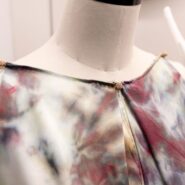
Faculty: Catherine Kueffer Blumenkamp, Designer/Draper and Lecturer in Human Centered Design
With Special Guest: Trish Ramsay, Fine Artist
Location: Human Ecology Building, 37 Forest Home Drive, Room 141
Week One: July 7 – 13, 2024
Course Type: Plus
Class Size: 20
Schedule: Monday - Friday, 9-12 and 1:30-3:30, except Wednesday afternoon.
Faculty: Roberta Moudry '81, M.A. '90, Ph.D. '95, Architectural Historian
****NEW Location: Lincoln Hall, Room B21
Week One: July 7 – 13, 2024
Course Type: Plus
Class Size: 20
Schedule: Monday - Friday, 9-12 and 1:30-3:30, except Wednesday afternoon.
Faculty: Sarah Wagner, PhD, Public Information Specialist, Lab of Ornithology
Location: Cornell Lab of Ornithology, 159 Sapsucker Woods Rd. Ithaca, NY 14850 (unless otherwise specified)
Week One: July 7 – 13, 2024
Course Type: Plus
Class Size: 15
Wednesday afternoon is "spring break."
Faculty: David Todd, Photographic Artist and eCornell Course Facilitator
Faculty: Jennifer Gioffre Todd, Photographic Artist and Photography & Manager of Art Studios
Location: Tjaden Hall, Room 121A
Week One: July 7 – 13, 2024
Course Type: Premium
Class Size: 15
Schedule: Monday - Friday, 9-12 and 1:30-3:30; no class Wednesday afternoon.
Faculty: Alexandra Cirone, Assistant Professor in Government, Faculty Fellow in Democratic Innovations at Yale University
Location: Lincoln Hall, Room 149
Week One: July 7 - 13, 2024
Course Type: Classic
Class Size: 10
Schedule: Monday - Friday, 9-12 and 1:30-3:30, except Wednesday afternoon.
Faculty: Ivan Sagel, Director and Senior Instructor of the Merrill Family Sailing Center
Location: Merrill Family Sailing Center, 1000 E Shore Dr, Ithaca, NY 14850
Parking: Available/included at the Sailing Center for course participants
Week One: July 7 – 13, 2024
Course Type: Plus
Class Size: 8
Schedule: Monday - Friday, 9-12 and 1:30-3:30, except Wednesday afternoon.
Sailing Manual.Unit 1
Sailing Manual.Unit 2
Sailing Manual.Unit 3
Sailing Manual.Unit 4
Sailing Manual.Unit 5
Sailing Manual.Unit 6
Sailing Manual.Unit 7
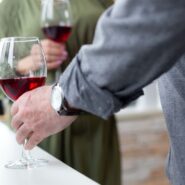
Faculty: Kathleen Arnink, Senior Lecturer & Director of Undergraduate Studies, Viticulture and Enology, CALS
Faculty: Annemarie Morse, International Wine Judge and Educator
Location: Stocking Hall, Room 202, unless otherwise specified on the Course Schedule
Week One: July 7 – 13, 2024
Course Type: Premium
Class Size: 20
Schedule: Monday - Friday, 9-12 and 1:30-3:30, no class Wednesday afternoon. Gourmet Dinner Thursday night 6 - 9. (Changed from Wed.)
Faculty: Charlie Green, Senior Lecturer in the Department of Literatures in English
Location: Lincoln Hall, Room 107
Week One: July 7 – 13, 2024
Course Type: Classic
Class Size: 12
Schedule: Monday - Friday, 9-12 and 1:30-3:30, except Wednesday afternoon.
Faculty: Jenni Sol Cunningham ’08, M.Ed., E-RYT 500, NASM CPT, Adjunct Instructor, Athletics Department
Location: Schwartz Center for the Performing Arts, Dance Studio Room 321, 430 College Ave., Ithaca, NY
Week One: July 7 – 13, 2024
Course Type: Plus
Class Size: 25
Schedule: Monday - Friday, 9-12 and 1:30-3:30, except Wednesday afternoon.

Check this section for updates from your faculty, as well as class times, building location, and classroom numbers. This section will be updated as CAU has more information to share.
Course Transfers: Sunday or Monday transfers from one course to another may be accommodated pending availability and logistics. Reach out to cauinfo@cornell.edu to learn more.
Read, print, sign in advance, and bring along to check-in.
Copies will also be available at check-in.
ZOOM LINK https://cornell.zoom.us/j/93421454618?pwd=R3d3ZUxWVUpzdU11K0tCblhZZUZ4UT09
Save the date to tune in by Zoom to meet your faculty and fellow course participants.
Except Art History: Check your class listing on this page for special details for the Art History Zoom meeting.
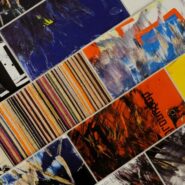
Faculty: Nancy Green, Gale & Ira Drukier Curator, Johnson Museum of Art (retired)
Faculty: Maryterese Pasquale-Bowen, Assistant for School Programs Johnson Museum of Art
Location: Johnson Museum of Art Lecture Room in New Wing
Week Two: July 14 – 20, 2024
Course Type: Plus
Class Size: 20
Schedule: Monday - Friday, 9-12 and 1:30-3:30, except Wednesday afternoon.
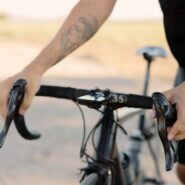
Faculty: Dr. Mark Holton, Co-Director of Cornell Outdoor Education with Laurie Cuomo from the Cornell Outdoor Education team
Location: Meet each morning in Ruth Bader Ginsburg Hall, CAU Summer Social Lounge
Course Type: Plus
Week Two: July 14 – 20, 2024
Class Size: 10
Schedule: Monday - Friday, 9-12 and 1:30-3:30, except Wednesday afternoon.
You can bring your own bike, or borrow one of ours.
Your Daily Routes:
Faculty: Elliot Shapiro, Senior Lecturer and Knight Foundation Director of the Writing in the Majors, Knight Institute for Writing in the Disciplines and Jewish Studies
Location: Lincoln Hall, Room 124
Week Two: July 14 – 20, 2024
Course Type: Classic
Class Size: 20
Schedule: Monday - Friday, 9-12 and 1:30-3:30, except Wednesday afternoon.
Faculty: Matt Baughan, Golf Course Head Pro & Men’s Varsity Coach with Kelly Baughan, and staff of the Robert Trent Jones Golf Course
Location: The Robert Trent Jones Golf Course, 213 Warren Rd, Ithaca, NY 14850
Week Two: July 14 – 20, 2024
Course Type: Plus
Class Size: 15
Schedule: Monday - Friday, 9-12 and 1:30-3:30, except Wednesday afternoon.
The Cornell University golf course was designed by Robert Trent Jones and proves to be a challenging test for all levels of golfers. The course is conveniently located at the edge of the Cornell University campus. Our facility has all the amenities needed to improve your game from tee to green – practice greens, chipping area, practice sand trap, and 300-yard driving range. There is ample parking for your vehicle, or you can walk from north campus to the course. You may leave your labeled clubs and equipment at the clubhouse each day.
Faculty: Corey Ryan Earle '07, Visiting Lecturer in American Studies, University Historian
Faculty: Evan Fay Earle '02, MS'14, Dr. Peter J. Thaler '56 University Archivist
Location: University Archives, Olin Library
Week Two: July 14 – 20, 2024
Course Type: Plus
Class Size: 20
Schedule: Monday - Friday, 9-12 and 1:30-3:30, except Wednesday afternoon.
Faculty: Cole Gilbert, Director of Undergraduate Studies and Professor of Insect Physiology
Location: 2123 Comstock Hall, Lab B146
Week Two: July 14 – 20, 2024
Course Type: Plus
Class Size: 15
Schedule: Monday - Friday, 9-12 and 1:30-3:30, except Wednesday afternoon.
Faculty: David Todd, Photographic Artist and eCornell Course Facilitator
Faculty: Jennifer Gioffre Todd, Photographic Artist and Manager of Art Studios
Location: Tjaden Hall, Room 121A
Week Two: July 14 – 20, 2024
Course Type: Premium
Class Size: 15
Schedule: Monday - Friday, 9-12 and 1:30-3:30; no class Wednesday afternoon.

Faculty: Kathleen Arnink, Senior Lecturer & Director of Undergraduate Studies, Viticulture and Enology, CALS
Faculty: Annemarie Morse, International Wine Judge and Educator
Location: Stocking Hall, Room 202 unless otherwise specified on the Course Schedule
Week Two: July 14 – 20, 2024
Course Type: Premium
Class Size: 20
Schedule: Monday - Friday, 9-12 and 1:30-3:30, no class Wednesday afternoon. Gourmet Dinner Thursday night 6 - 9. (Changed from Wednesday)
Faculty: Charlie Green, Senior Lecturer in the Department of Literatures in English
Location: Lincoln Hall, Room 107
Week Two: July 14 – 20, 2024
Course Type: Classic
Class Size: 12
Schedule: Monday - Friday, 9-12 and 1:30-3:30, except Wednesday afternoon.

Signs for CAU will be visible as you get closer to RBG Hall.
Park your vehicle in the Appel Parking Lot. (You do not need a parking permit upon arrival since Cornell will not issue parking tickets on Sunday.)
Then, follow the signs to CAU check-in.
CAU staff will be available to help dorm residents carry luggage into RBG Hall to the Welcome Desk for check-in.
Early arrivals? Unfortunately, early arrivals can’t be accommodated. Thanks in advance for arriving on time!
Late arrivals?
Arriving after 5:00 p.m. on Sunday?
Late arrivals will be able to pick up a name badge and other information at the CAU Hospitality Desk at Ruth Bader Ginsburg Hall. Late arriving residential participants will need to pick up their hall/elevator, suite, and room keys on the first floor of Robert Purcell Community Center, a short distance from RBG Hall. The RPCC service desk’s phone number is 607.255.6214. The CAU Hospitality Desk phone is 607.255.6260.
Arriving after 9:00 p.m. on Sunday?
If you are planning to arrive after 9:00 p.m. on Sunday evening, plan ahead and let CAU know in advance so we can help. Contact cauinfo@cornell.edu ahead of time to make arrangements.
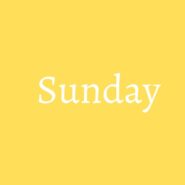
2:00 - 4:00 p.m. Check-in for participants staying at Ruth Bader Ginsburg Hall at CAU’s Hospitality Desk on the first floor of RBG Hall.
4:00 - 5:00 p.m. Check-in for commuter participants at CAU’s Hospitality Desk on the first floor of Ruth Bader Ginsburg Hall.
2:00 - 5:00 p.m. During check-in, the CAU Social Lounge located on the first floor of RBG Hall (room 125/127) will be open for light refreshments.
4:30 - 5:30 p.m. Campus Tour starts from RBG Hall Hospitality Desk.
5:30 - 6:00 p.m. Welcome Reception
6:00 – 7:00 Welcome Dinner
7:00 p.m. - 8:00 p.m. Keynote Address (same space as dinner)
8:00 – 10:00 Ice Cream Social (optional), CAU Social Lounge, RBG Hall
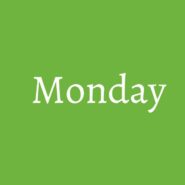
7:00 - 7:30 a.m. Optional Morning Refresh in the CAU Social Lounge, RBG Hall
Engage your breath and awareness through a series of simple physical exercises led by Julie Nathanielsz '93, MFA, Dance, Movement, and Contemplative Practice instructor, 2016-2017 Fulbright Scholar.
9:00 a.m. - 3:30 p.m. Class in Session: See your Course Schedule for variations in timing, locations, and field trip details
4:00 p.m. - 5:30 p.m. Social Lounge open with refreshments and munchies, RBG Hall
6:30 p.m. - 10:00 p.m. Social Lounge open with refreshments and munchies, RBG Hall
7:00 - 8:00 p.m. Monday Evening Lecture, in the CAU Social Lounge, RBG Hall
8:30 - 9:30 p.m. Trivia Night in the CAU Social Lounge, RBG Hall led by Joe Lyons '98

7:00 - 7:30 a.m. Optional Morning Refresh in the CAU Social Lounge, RBG Hall
Engage your breath and awareness through a series of simple physical exercises led by Julie Nathanielsz '93, MFA, Dance, Movement, and Contemplative Practice instructor, 2016-2017 Fulbright Scholar.
9:00 a.m. - 3:30 p.m. Class in Session: See your Course Schedule for variations in timing, locations, and field trip details
4:00 p.m. - 5:30 p.m. Social Lounge open with refreshments and munchies, RBG Hall
4:30 - 5:30 p.m. Tuesday Lecture in the CAU Social Lounge, RBG Hall
5:30 - 6:30 p.m. Community Dinner, Appel Commons, 3rd Floor Multipurpose Room (Changed from outside due to heat advisory)
6:15 - 6:30 p.m. An update on Sustainability at Cornell, Appel Commons, 3rd Floor Multipurpose Room (Changed from outside due to heat advisory)
6:30 - 8:00 p.m. Entertainment, Appel Commons, 3rd Floor Multipurpose Room (Changed from outside due to heat advisory)
6:30 p.m. - 10:00 p.m. Social Lounge open with refreshments and munchies, RBG Hall
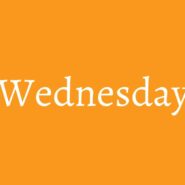
7:00 - 7:30 a.m. Optional Morning Refresh in the CAU Social Lounge, RBG Hall
Engage your breath and awareness through a series of simple physical exercises led by Julie Nathanielsz '93, MFA, Dance, Movement, and Contemplative Practice instructor, 2016-2017 Fulbright Scholar.
9:00 a.m. - Noon Class in Session: See your Course Schedule for variations in timing, locations, and field trip details
12:00 p.m.: Spring Break: No Class Wednesday Afternoon: Many participants use this time to explore the surrounding Finger Lakes region.
1:30 - 3:30 p.m. Both weeks
Cornell Fashion + Textile Collection Open House
Human Ecology Building, 37 Forest Home Drive, Room T56
See the current exhibit, "Harlem Noire," led by Catherine K. Blumenkamp, Lecturer in Human Centered Design (both weeks)
4:00 p.m. - 5:30 p.m. Social Lounge open with refreshments and munchies, RBG Hall
6:30 p.m. - 10:00 p.m. Social Lounge open with refreshments and munchies, RBG Hall
8:00 - 9:00 p.m. Spring Break Bingo in the CAU Social Lounge, RBG Hall

7:00 - 7:30 a.m. Optional Morning Refresh in the CAU Social Lounge, RBG Hall
Engage your breath and awareness through a series of simple physical exercises led by Julie Nathanielsz '93, MFA, Dance, Movement, and Contemplative Practice instructor, 2016-2017 Fulbright Scholar.
9:00 a.m. - 3:30 p.m. Class in Session: See your Course Schedule for variations in timing, locations, and field trip details
4:30 - 5:30 p.m. CAU Faculty-Led Campus Tour
4:00 p.m. - 5:30 p.m. Social Lounge open with refreshments and munchies, RBG Hall
6:30 p.m. - 10:00 p.m. Social Lounge open with refreshments and munchies, RBG Hall
7:00 - 8:00 p.m. Thursday Evening Lecture in the CAU Social Lounge, RBG Hall
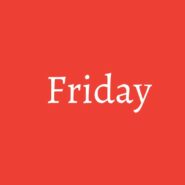
9:00 a.m. - 3:30 p.m. Class in Session: See your Course Schedule for variations in timing, locations, and field trip details
4:00 p.m. - 5:30 p.m. Social Lounge open with refreshments and munchies, RBG Hall
Week Two new addition:
4:00 - 5:00 p.m. Frank Lloyd Wright Presentation, RBG Social Lounge by Kim Bixler '91
Both Weeks:
5:30 - 6:30 Reception, Moakley House, Robert Trent Jones Golf Course
6:30 - 8:30 Farewell Banquet, Moakley House, Robert Trent Jones Golf Course
The Week One Banquet will be extra special as we recognize five members of the CAU Advisory Board who have recently completed their terms! Join us as we celebrate Elisabeth Boas '71, Carole Leister '84, David Levine '78, Nancy Sverdlik '79, and Donna Tobin '82.
8:30 p.m. - 11:00 p.m. Social Lounge open with refreshments and munchies, RBG Hall
9:00 p.m. Optional/on your own Stargazing at Fuertes Observatory
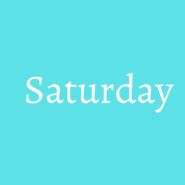
8:30 a.m.-10:00 a.m. Assistance with luggage will be available to those in need.
10:00 a.m. CAU Summer concludes. Check-out time for residents of Ruth Bader Ginsburg Hall.
Read, print, sign in advance, and bring along to check-in.
Copies will also be available at check-in.
Read, print, sign in advance, and bring along to check-in.
Copies will also be available at check-in.
Laundry + linens: For RBG residents, the housing staff on campus furnishes linens and towels weekly. Self-service laundry facilities are available in Ruth Bader Ginsburg Hall.
Mail: Unfortunately, RBG Hall cannot accept mail during the summer. DO NOT have mail or packages sent to the RBG residence hall. Please contact cauinfo@cornell.edu to arrange for mail delivery if necessary.
Pets: Cornell University housing regulations do not allow pets in any residence unless they are registered Emotional Support Animals or registered Service Animals.
Cornell offers a free daily fitness pass to use the on-campus recreational facilities. This pass includes access to fitness centers, the pool, and gymnasiums at Helen Newman Hall and Noyes Fitness Center. To request a daily pass, please see the CAU Hospitality Desk. Users will need to carry their fitness pass and a photo ID to access a fitness facility.
The CAU Social Lounge will be located on the first floor of RBG in rooms 125/127.
Soft drinks, wine, beer, mocktails (non-alcoholic beverages), and light snacks will be available each day after class, starting at 4:00 p.m., and again after dinner until 10:00 p.m.
Adults only in this lounge, please.
CAU provides parking passes for North Campus, where CAU has its headquarters, dormitory, and social lounge. Many classes are held on Central Campus. Gauging the distance in advance will ensure getting to class on time is an enjoyable experience.
Parking on Sunday/Check-in Day: The Appel parking lot is the designated move-in lot only. Parking is free on Sundays though so you will not be issued a ticket upon arrival on Sunday afternoon or evening at check-in if you do not have a permit.
Parking Monday - Friday: Parking lot A is the designated parking lot for CAU participants. One entrance to Parking Lot A is located off Pleasant Grove Road, across from the Robert Trent Jones golf course. The other entrance is located off Jessup Road across from Toni Morrison Hall, turning south on Northcross Road.
Park Mobile: You can drive your vehicle to class and pay to park at various Park Mobile locations around campus. Check out the Park Mobile Campus Map for locations where you can use the app.
Do you need an accessible parking space on Central Campus? Please contact
Cornell University is committed to providing universal access to all university programs. Contact cauinfo@cornell.edu to request any needed disability accommodations. Advance notice is necessary to arrange for some accessibility needs.
Do you need a ride to class?
Please schedule rides to class using Ithaca’s reliable local providers. You can schedule rides online with both of these providers. (Red Runner is no longer an available option.)
You will receive a free TCAT bus pass. Check out the bus schedule and routes.
Health Services
Emergency medical care is available at the Cayuga Medical Center (607-274-4011) on Route 96 and at its Convenient Care (607-274-4150) extension at 10 Arrowwood Drive off Warren Road. Convenient Care is open 7:00 a.m.-10:00 p.m. daily. Registrants are responsible for their own emergency, surgical, medical, and hospital care fees.
Emergencies
In the case of a true emergency, you can reach the campus police at 607-255-1111 or dial 911. Be sure to tell them where you are staying or located at the time of the emergency.
For meals on your own, check out this list of on-campus eateries. You can sort the list by checking the boxes "open today" and "nearest first." You can pay by credit card at all Cornell eateries.
Your program/course fee includes 3 community dinners/events (Sunday, Tuesday, Friday) + daily coffee breaks and happy hours.
All other meals are on your own. (The optional CAU section of Toni Morrison Dining Hall is a great place to gather for meals on your own.)
This ensures you have maximum freedom to experience Cornell's vast selection of on campus eateries (pay by credit card as you go) and to try Ithaca's fun and delicious options, too!
NOTE: If you are in the Wine & Food Pairing course, you will have one additional included dinner.
As always, there will be an optional CAU Summer seating section reserved in Toni Morrison Dining Hall. This is a great place to meet others in the program and to chance upon faculty guests who will be popping in occasionally throughout your week.

Sustainability at CAU Summer
Here's what you can count on:
Recycling and composting: there will be clearly marked bins in the CAU Social Lounge
Water filling stations + reusable bottles (Bottled water will not be provided.)
Digital/online materials (Print outs will not be provided except for the required weekly waiver.)
Re-usable dishware at Community Dinners and in the CAU Social Lounge
Bottled water will not be provided.
Be sure to pack your favorite reusable bottles and coffee cups!
You can use the kitchen in the CAU Social Lounge in RBG Hall to wash your reusable bottles and cups.
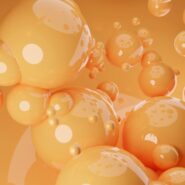
Everything you need can be found online.
You may choose to print information prior to arrival for your personal use.
Unfortunately, CAU is unable to print for you once you arrive.
There will also be a digital screen displaying each day's optional activities in the CAU Social Lounge in RBG Hall.
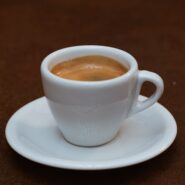
Coffee and tea are always available in the CAU Social Lounge at RBG Hall. Be sure to pack your reusable coffee mug to make it easy to bring take your hot beverage of choice to class. Some classes will have provided coffee breaks. Take your reusable mug to class so that you can easily enjoy these offerings.
Refer back to the CAU Summer 2024 Course Roster to get excited about what you want to take at CAU Summer 2025.
Share this link with a friend who may want to join you at CAU Summer.
From a Broadway-filled weekend in NYC, to an Antarctica cruise with Cornell scientists, CAU keeps learning with you. In addition to CAU Summer, CAU offers domestic and international study tours and subject-specific seminars.
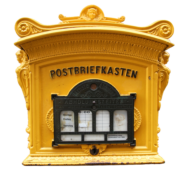
Cornell’s Adult University
Cornell University Alumni Affairs and Development
607-255-6260
cauinfo@cornell.edu
